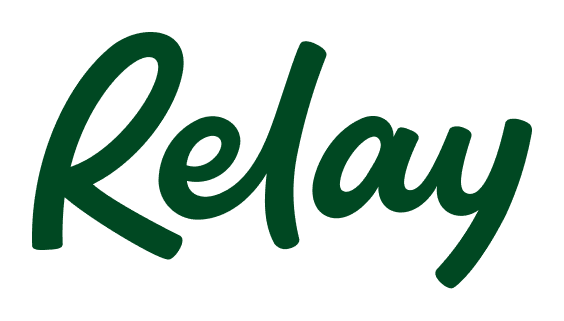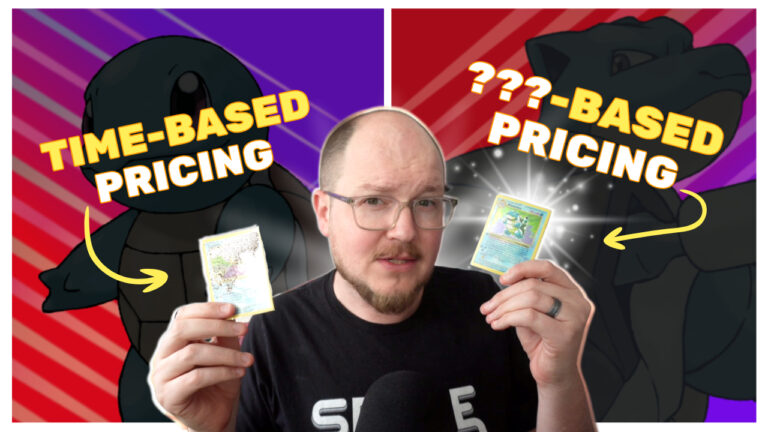Quick disclaimer, if you’re looking for a step-by-step tutorial on how to set up an LLC – this is NOT that. I want to talk about how to actually start a business. More specifically I want to talk about how to start it on the right foot, and there’s more to it than just filing paperwork.
I’ve talked a lot about how to market your business, how to manage your business finances, how to balance your business life and personal life, but I haven’t spoken directly on how to actually start a business in the first place.
That’s partly by design, partly by laziness. There’s already a lot of content out there walking you through setting up an LLC with various services. I didn’t want to just add to the noise and possibly cause confusion by rushing out a post that was anything less than crystal clear and crazy helpful.
Well, today I’m going to finally take a stab at it. And to keep this as simple as possible, I’m going to break it down into 1, 2, 3.
- 1 question to answer
- 2 things you need to take care of right now, and
- 3 steps you will need to prepare for next.
First you need to ask yourself…
What problem can you help people solve?
There’s a lot of other questions you should be asking. You want to start your business with a comprehensive plan. But one of the most foundational things you should figure out is if there’s a reason for people to do business with you in the first place.
42% of startups fail because of a lack of market need. And I can’t help but wonder how many would have fared better if they started by asking the right questions, but I also wonder if what they offered reframed their own thinking about their business and the way they positioned themselves to their customers – not just as “a thing that has this feature” but “a key to unlock a better future.”
People don’t buy products, they buy solutions to their problems.
I’ve also heard it phrased, “People don’t buy products, they buy better versions of themselves.”
At the end of the day, you shouldn’t be in the business of selling stuff. You want to be selling a happier, healthier, easier, wealthier, more satisfying life.
Don’t be intimidated by this. This question isn’t here to stop you moving forward. Unless your idea is absolute rubbish like a goldfish leash. But something ridiculous like that could have value because it’s funny – it makes people laugh. It might be a hit with clowns and prop comedians. I just personally build a business around it.

As long as you understand how your goldfish leash can help people solve a problem and achieve an aspirational identity, and communicate that in a way that clicks and gets them to take out their wallet, then you have just validated your business idea.
Again, this question shouldn’t be a roadblock, but a sign; some guardrails to help you move forward in the right direction so you don’t end up like the 42% who keep running down the wrong path for a year or two before realizing they were walking right into a dead end.
Your idea doesn’t need to be brand new. It doesn’t need to be the absolute best version of something. It just needs to be helpful.
If you can watch people’s pets while they’re on vacation, or you can build and hang custom window shutters, teach someone an instrument, help businesses implement complicated inventory management software, make festive cakes, anything that provides a solution, convenience, or delight for someone else, you can start a business.
Just make sure it’s profitable. Don’t forget to factor in the cost of your time, taxes, and other expenses into your pricing, or else you won’t be staying in business very long. Just as important as identifying what your business can do for other people, identify what you want it to do for you.
If this is just a side-gig that’s bringing in a little extra cash for Christmas gifts, cool. But if this is going to be your sole source of income that you need to provide for your family, you need to figure out what that’s going to look like. That’s a whole other conversation I’d be happy to get into in the future, but for now, set some expectations and do a little math.
So you answered that question, you have a plan. Now, go do that thing and congratulations, you’re in business.
Now there’s a lot of things you can do to start digging in your heels and getting down to business on your business.
But there are two steps I recommend every business owner, freelancer, side-hustler, whatever, take care of right away:
Apply for an EIN
Apply for an EIN. That is, your Employer Identification Number. This is like a Social Security Number for your business. In fact, one of the first benefits of having an EIN is to help protect your identity, to keep you from having to swing your own social security number around in front of everyone you’re doing business with.
When I first started freelancing, clients would send me a W9 to fill out so they have all my information on file and then they’d send me a 1099 at the end of year. Tax stuff.
I didn’t have an EIN at first, so my personal social security number was floating around on all of this paperwork. I don’t think anybody’s stolen my identity. But I’m playing it safe now. An EIN is also a lot more professional. You’re showing up as a business and not just some kid who makes websites on the side. It’s a small thing but it’s a big thing.
It’s also a free and easy thing.
Companies like charging for this. One in particular (whose name rhymes with “beagle flume”) would love it if you paid them $79 for them to file for an EIN on your behalf.
But you can go straight to the IRS’s website and apply online for free.
You’ll also need an EIN for the next step you should take right away….
Open a separate business bank account
As soon as you start making money and spending money from and for your business, you want to make sure you are keeping all of your income and expenses separate from your personal finances. It will make life so much easier for you come tax time, and it will keep you out of trouble – from yourself – and from the IRS or other parties who might want need to scrutinize your monies for any hopefully only hypothetical situations.
Also, it’s a lot more professional. You’re a business now.
One overarching step you want to take is to start taking yourself more seriously as a business. If you’re mixing up your business cash in the same shoebox that you’re pulling out of to pay your Netflix bill, that’s going to mentally stunt you and your business growth.
Look for a bank that has
- no account fees
- low to no minimum opening deposit
- no minimum balance requirement, and
- allows you to easily open multiple accounts or sub-accounts
Right after you read this article, you are going to jump over to my overview of the Profit First method – which is a super simple way to manage your money and ensure profitability from Day One. And having a bank that checks all of these boxes – especially the multiple account and no minimum balances is pretty crucial.
I’ve bounced around quite a few different business bank accounts in my day. Six, to be precise, before finally landing on lucky number 7 – Relay Financial (who happens to be the sponsor of this post). But they don’t have to pay me to plug them. Relay has honestly been my favorite bank account to date. I’ve been using them for both of my businesses, which – quick win – I can easily access both business accounts with one login on their website and app. Very nice.
They are online only, which might not be everybody’s cup of tea – especially if you are dealing with a lot of paper cash. But you can deposit checks, and they play nicely with different online payment processors.
- Zero-fees
- No account minimums
- Multiple accounts
- It works great with the Profit First method
- You can easily get a state of the union on your different accounts
You can easily break out taxes, profit, operating expenses, special projects; however you want to set it up.
They offer a bunch of other features that I’m not personally using yet , like being able to designate different accounts, debit cards, and spending limits for multiple users – but those features are there for when I do begin growing my team.
You can check out my full review of Relay here.
But don’t take my word for it. Sign up for your own account and take them for a spin yourself to see if they are a good fit for you. It’s free and easy. And when you sign up with my link, I will dispatch an invisible homing pigeon to your home to share a silent but powerful word of encouragement and appreciation.
Whichever bank you choose, and whether or not you implement the Profit First method – which you should, but I can’t make you, but do it – At the very least, create a separate Tax account and start setting aside about 25% of any business income into this. Because there are few things that induce more anxiety than not knowing if you have enough money to pay your tax bill.
There are ways we can lower that 25% by a good chunk. But this is just a starting point. We’ll dig into that another day.
The next part is more of a table of contents for some topics I’ll cover in more detail in the future. There are 3 things – or categories of things – that you will want to start working on ASAP.
The first is…
Legally protecting yourself and your business
NOW we can talk about registering an LLC (or other business structure).
I want to reiterate – what I mentioned earlier – incorporating a business is not the same as starting a business. The moment you start doing business is when you start a business, and a lot of businesses choose to operate as an unincorporated sole proprietorship.
But taking the step to form an LLC – especially if you decide that, yes, this is not just a side gig, I want this to be my livelihood, creates a layer of protection between your business and your personal assets. God forbid someone wants to sue your business, they could only ever come after what belongs to your business. Your house, your car, your savings are safe – so long as you don’t get goofy and mingle your business and personal finances too much. But we’re not doing that, right?
But let’s avoid lawsuits in the first place, shall we? Be diligent with record keeping. If you are a service provider, make sure you are using contracts or written agreements with your clients. Research any other policies, disclaimers, or other documents you should have in place for your particular business situation.
And it would definitely be worth looking into getting a business insurance policy to cover the potential damage or loss of physical property, but also serve as a line of legal defense in case a customer wants to come after you for something related to errors or omissions.
Systems & Tools
The second category is Systems & tools to help you work more efficiently and grow your business. I’m talking about software that can help you track income and expenses, send invoices and collect payments, a CRM to keep track of your customers, an email marketing service, I would even file your website under this category. You don’t need to go crazy and buy a bunch of expensive software subscriptions and try to build a giant robot that completely automates your entire business all at once. Test one thing at a time. What is the biggest pain point and time suck? What is something that’s got your screaming there’s got to be a better way!
There probably is. You might even consider shopping the work out entirely to another company. But, you’re just starting out. Take time to feel out what you need, and alway be looking for the return on investment. If you’re spending money on a tool or service, it should be helping you save a great deal of more money or make a great deal of more money than what you’re spending.
Grow You Network
Lastly, but not leastly, you want to start growing your network. Connect with people – seek out a mentor who has already been where you want to go and can help you navigate the choppy seas of self-employment. Get plugged into a community, a mastermind, a chamber of commerce, or other group of people who are on a similar journey as you – who can offer inspiration, accountability, and even become strategic partners and champions for your business.
And of course, you need to start connecting with customers.
I KNOW the temptation to wait. And wait. And WAIT until everything is perfect before you officially launch your business. But it will never be perfect UNLESS you start selling. Start putting yourself out there as soon as you have a minimum viable product. Then get feedback, make improvements, build momentum, start making money, invest in tools to help you grow. You’ll know how to grow your business based on what you are actually seeing is working and where you need help. And you’ll grow it with money that you’re making, not just bleeding out your savings trying to build a machine that you never turn on.
I know your website isn’t as polished as you’d like, and you haven’t written your email nurture sequence yet. But your customers aren’t buying your beautiful logo, or your immaculate Facebook business page. They are buying a solution to a problem. As long as you have that, you’re in business. Or rather, as long as they are paying your for that, you’re in business.
So what are you waiting for? Let’s get started!
Again, this is more of a table of contents or an introductory chapter that gives you a helicopter tour of the main things you need to start your business. Let me know if you have any specific questions or if there’s a what topic/step you would like me to dig deeper into or even record a step-by-step tutorial.
Self-employment shouldn’t be by-yourself employment. If you need any help, your trusty sidekick is standing by.



